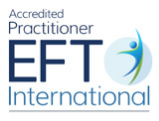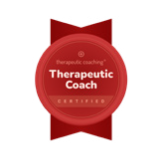Do you struggle with any addictions? Maybe you find it difficult to go without coffee for a boost, or the idea of being off social media for just one day makes you anxious. Some people can’t resist spending money on unnecessary items, even when their bills are overdue. Others feel irritable if they miss their daily workout at the gym (what? Exercise is supposed to be healthy, right?).
Whether something qualifies as an addiction depends on your intent. If your intent is to be a responsible and self-caring adult, then going to the gym is a positive, loving action. However, if you use that post-workout high as a means to escape from your feelings or responsibilities, it becomes addictive. It takes courage to be honest with yourself about your true intent, and sometimes, seeking outside help is necessary. Most of us need support when dealing with addictions. We often fight tooth and nail to defend our habits—both to ourselves and others. There’s a good reason for this. Addictions are often a way of dealing with pain, whether physical or emotional. They serve to distract us from our discomfort, helping us sidestep, deny, or attempt to fix it.
There are countless ways to avoid feeling painful emotions. Many of us are familiar with common addictions like food, alcohol, drugs, sex, gambling, shopping, work and excessive screen time. However, many are unaware of their more subtle addictions, which can affect us just as negatively. Common covert addictions include blaming others for our unhappiness, excessive worrying about the future (believing it will give us control over outcomes), and giving ourselves up in an attempt to manage how others perceive us (people-pleasing).
How do we develop these addictions? As children, many of us were not taught how to cope with the intense emotions that often accompany childhood. We may not have received the love and nurturing necessary to navigate feelings of pain, loneliness, or heartache. Moreover, we frequently lacked role models to demonstrate how to care for ourselves lovingly. If we didn’t know how to manage difficult emotions like loneliness or sadness, we might have learnt to turn to various addictions as a way to cope.
To heal the hurt behind addictions, we need to recognise that the part of us that drinks too much, overeats, or blames others is often a scared, wounded child or adolescent who learned early on how to avoid pain. While the original pain usually comes from childhood, we often unintentionally add to it with self-judgment. This creates even more pain to avoid, which can strengthen the addiction. By extending compassion, kindness, and understanding to our wounded parts and becoming interested in learning how to take loving care of our inner child, we can break the cycle of addiction.
I would be more than happy to support you in developing a loving relationship with yourself and your inner child, enabling you to heal the hurt behind your addictions and ultimately find freedom from them.











